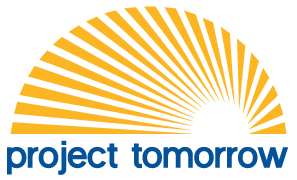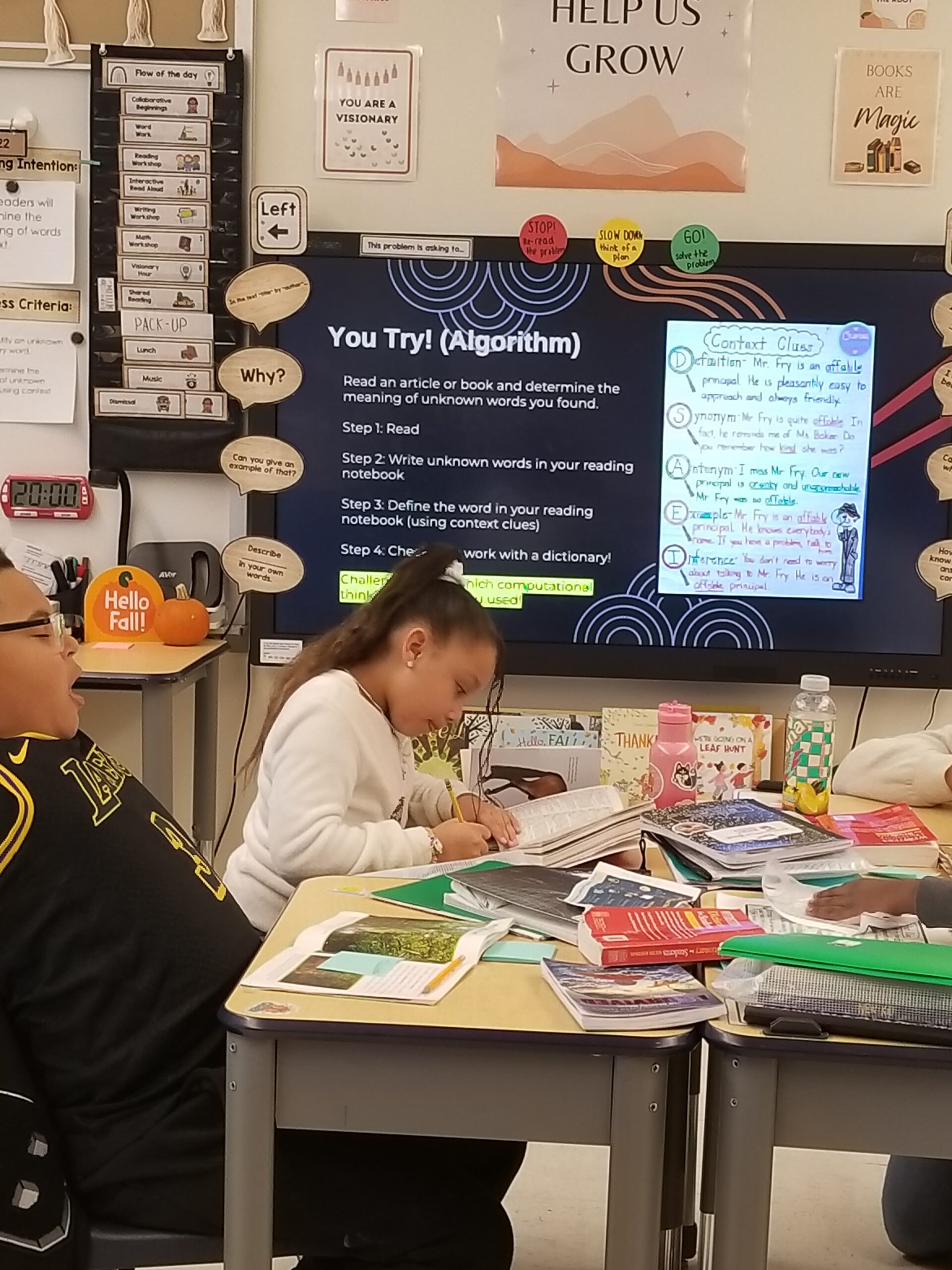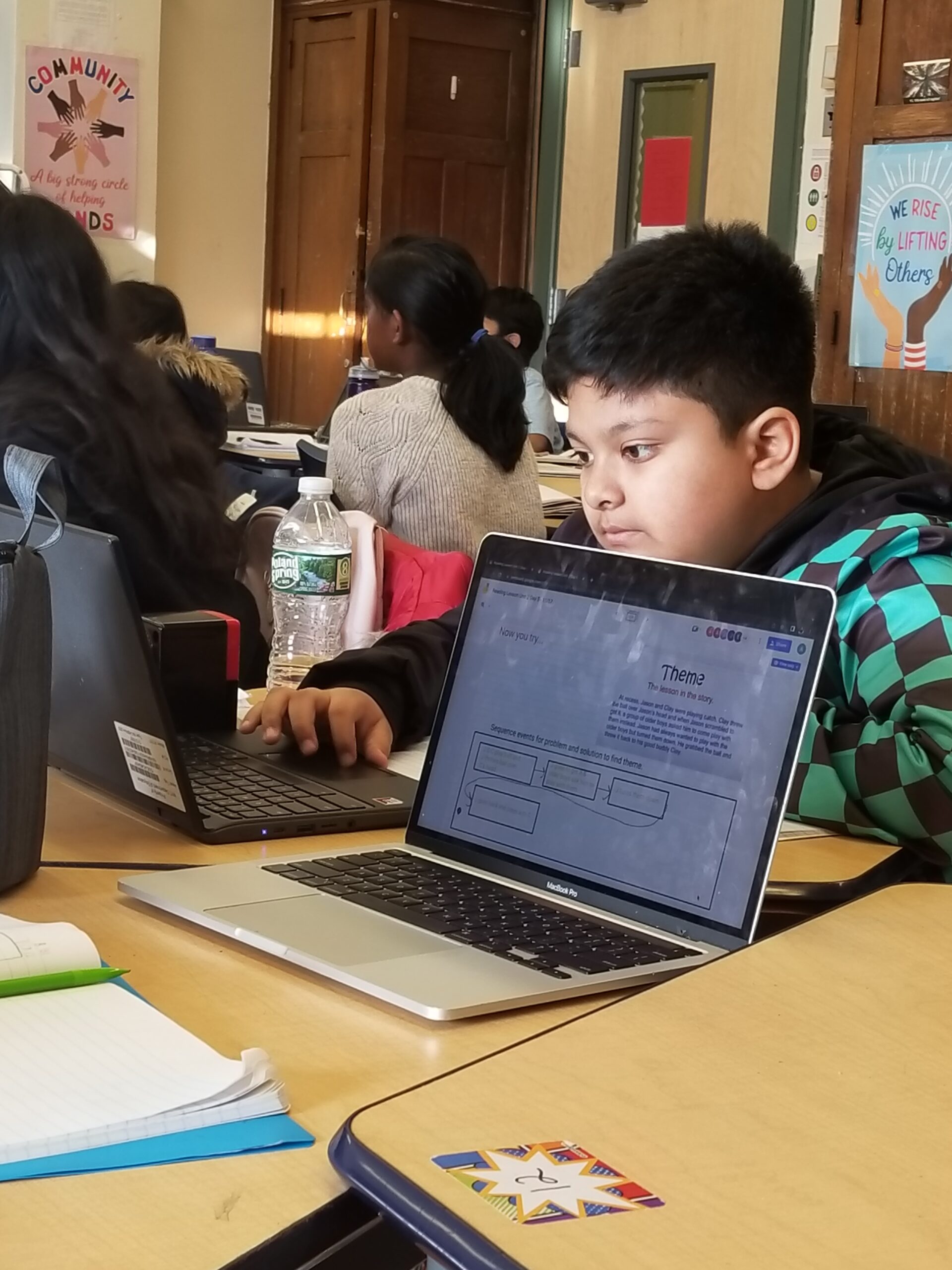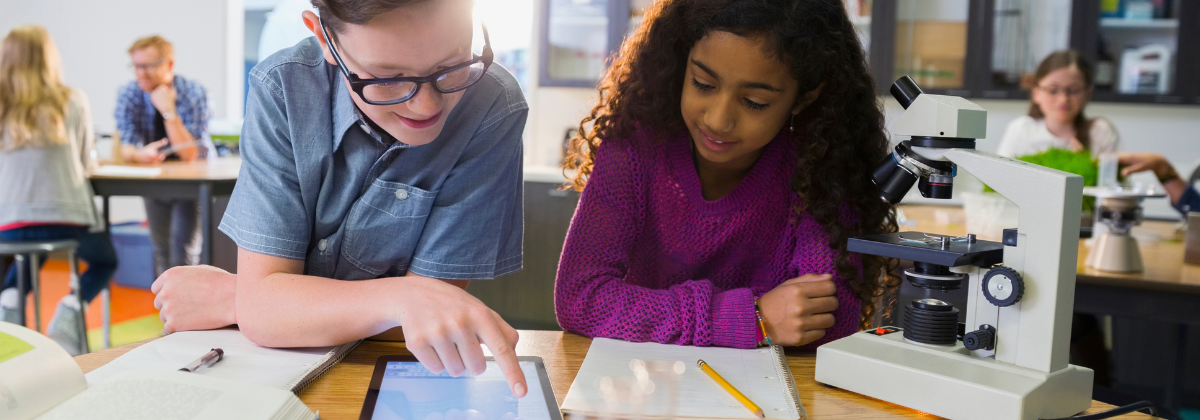Building Elementary Teacher Readiness and Capacity for Computational Thinking within Core Curriculum (BETR-CT)
NYC Program Overview
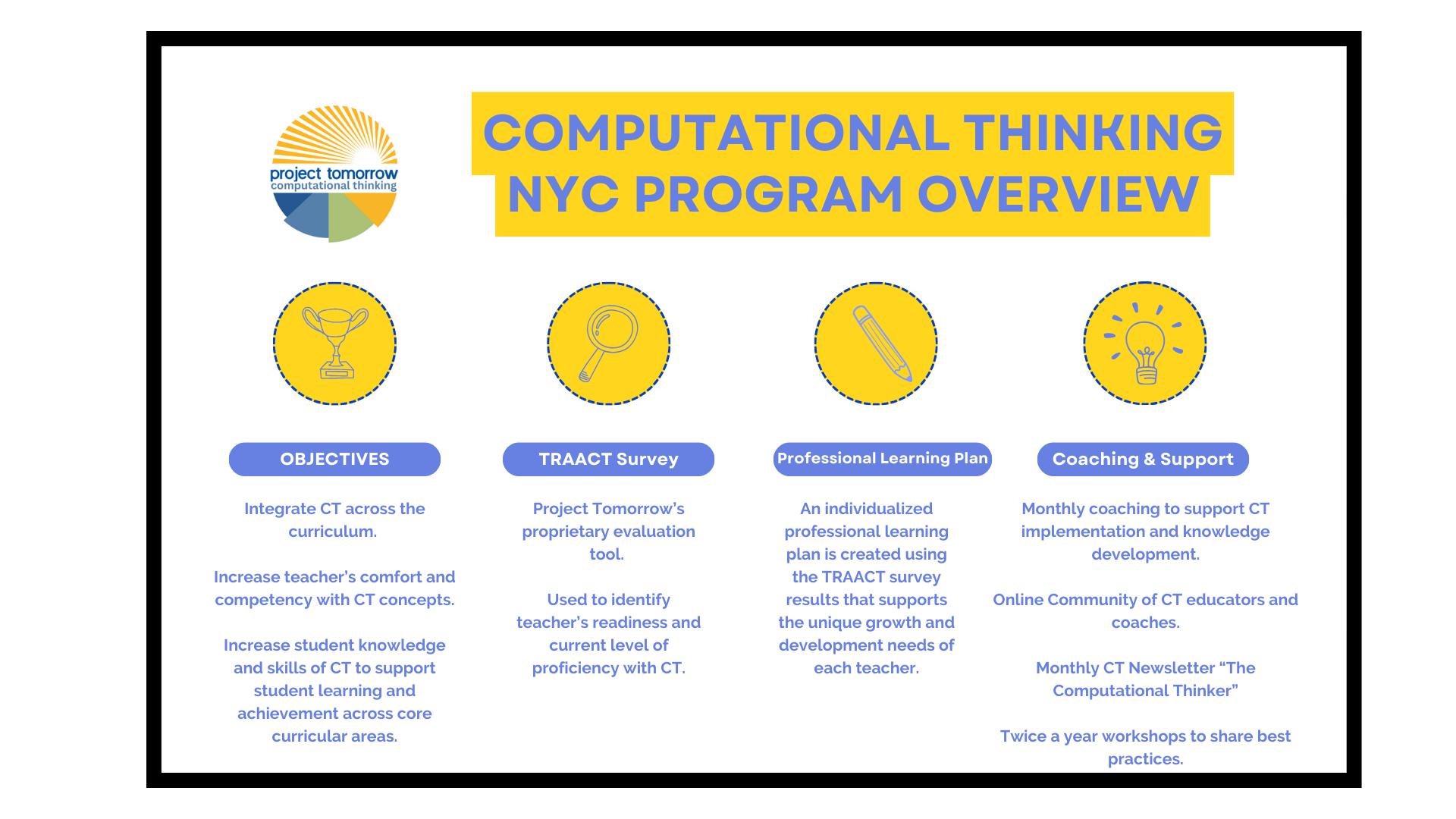
Since January of 2020, the focus with the BETR-CT project is working with New York City elementary public schools to integrate Computational Thinking (CT) concepts and principles within their existing core curriculums.
Central to our model is meeting teachers where they are regarding CT. Using a proprietary evaluation tool developed for this project, we identify each individual teacher’s readiness and current level of proficiency with CT to determine an individualized professional learning plan that directly supports the unique growth and development needs of each teacher. Through this work, we aim to increase student knowledge and skills of CT to help support student learning and achievement across core curricular areas. It is also important for us to support learning for all types of learners (including ELL students, students with IEPs and students with lower levels of literacy) by increasing their knowledge and skills to articulate and apply computational thinking concepts and practices in one or more subject areas within their curriculum.
The BETR-CT Project implementation in New York City is financially supported by the Robin Hood Learning + Technology Fund.
For additional information about the BETR-CT Project in New York City, please contact David Gomez at dgomez@tomorrow.org.
Thank you so much for this opportunity. I look forward to continuing building my knowledge of CT and sharing it with my school community.
-4th Grade Teacher, New York City
Computational Thinking is at the heart of everything we do in our school. Our students really love the different opportunities they have to show what they’ve learned, and our teachers are able to see students explain their thinking in different ways.
-Elementary school administrator
Computational Thinking has really helped my teachers refine their craft and push their own personal boundaries on what is possible in their instruction- especially with using technology. I’ve seen such a change in the ways my teachers plan their lessons with students and how they question them to explain their thinking in new ways
– Elementary school administrator
Computational Thinking has helped me help my students really dig deep into all content areas. Students were able to understand what they were doing as a direct result of the use of CT concepts and applications in the classroom. I felt very successful this year implementing CT.
-4th grade teacher
List of Participating Schools
We’re honored to work alongside our New York City public schools to support their school learning goals to promote an equitable learning environment for all students and the CT growth and development of their teachers and students!
2023-2024 School Year
This year’s cohort includes 2nd-5th grade classes in the following schools:
Staten Island
PS 19: The Curtis School
PS 68: The Port Richmond School for Visionary Learning
Brooklyn
PS 233: Langston Hughes School
PS 329: The Surfside School
Queens
PS 131: Abigail Adams School
PS 330: Helen M. Marshall School
PS 176: The Cambria Heights School
Manhattan
PS 15: The Roberto Clemente School
2022-2023 School Year
This cohort included 2nd-5th grade classes in the following schools:
Staten Island
PS 19: The Curtis School
PS 68: The Port Richmond School for Visionary Learning
Brooklyn
PS 233: Langston Hughes School
PS 329: The Surfside School
Bronx
PS 107X
PS 207 Godwin Terrace School
Queens
PS 110 Tiffany School
PS 131: Abigail Adams School
PS 253: Randolph Holder School for Social Justice
PS 330: Helen M. Marshall School
Manhattan
PS 15: The Roberto Clemente School
PS 192: Jacob H. Schiff School
2021-2022 School Year
This cohort included 2nd-5th grade classes.
Staten Island
PS 19: The Curtis School
PS 68: The Port Richmond School for Visionary Learning
Brooklyn
PS 233: Langston Hughes School
PS 329: The Surfside School
PS 557: Brooklyn Gardens School
Queens
PS 131: Abigail Adams School
PS 330: Helen M. Marshall School
Manhattan
PS 15: The Roberto Clemente School
PS 34: Franklin D. Roosevelt School
2020-2021 School Year
This cohort included 4th and 5th grade classes and one 2nd grade class.
Staten Island
PS 19: The Curtis School
PS 68: The Port Richmond School for Visionary Learning
Brooklyn
PS 233: Langston Hughes School
PS 268: Emma Lazarus School
PS 329: The Surfside School
PS 398: Walter Weaver School
PS 557: Brooklyn Gardens School
Queens
PS 131: Abigail Adams School
PS 330: Helen M. Marshall School
Manhattan
PS 15: The Roberto Clemente School
2019-2020 School Year
The project started spring term with 4th grade classes.
Staten Island
PS 19: The Curtis School
Brooklyn
PS 233: Langston Hughes School
PS 268: Emma Lazarus School
PS 329: The Surfside School
PS 398: Walter Weaver School
PS 557: Brooklyn Gardens School
Queens
PS 131: Abigail Adams School
PS 330: Helen M. Marshall School
Manhattan
PS 15: The Roberto Clemente School
Project Dissemination
Paper presentation at the 2021 American Educational Research Association (AERA) Annual Meeting
Personalizing Elementary Teacher Professional Learning on CT Integration
April 11, 2021
Expansion Plans
It is our goal to replicate this program in selected schools and communities beyond New York City during the 2024-25 school year. To learn more about these expansion plans and/or to nominate your school or community for this program, please contact Dr. Julie A. Evans at jevans@tomorrow.org or 949-609-4661.
